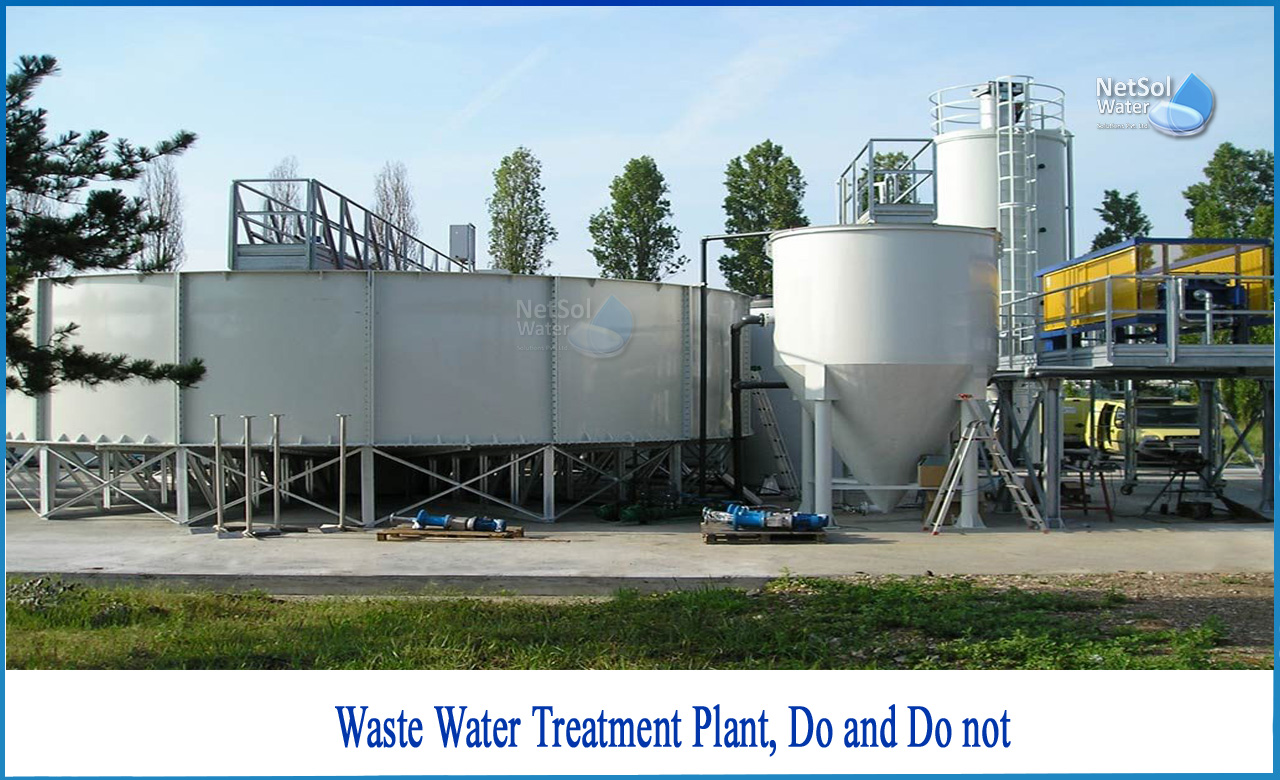Waste water treatment plant, Do's and Do not's?
Wastewater treatment is the process of removing impurities from wastewater and converting it into effluent that may be recycled into the water cycle. Once restored to the water cycle, the effluent has an acceptable environmental impact or is utilized for a variety of applications. It is made up of three separate chambers and three different phases, all of which are necessary for water purification.
The first stage is the principal settlement chamber.
The major settling chamber is where anaerobic breakdown occurs. It will separate the liquid from the solids, allowing the solids to settle to the bottom.
The aeration chamber is the second stage.
An aerobic breakdown is used once more in this step of wastewater treatment. A large number of naturally occurring bacteria live in a specifically constructed filter medium. They will aid in the purification of the sewage. They are supported by air, which is continually supplied by a pump in the upper half of the device. When the liquid enters the filter medium, bacteria feed on the sewage and remove it from the soon-to-be cleaned water.
The third stage is the ultimate settlement chamber.
If any suspended sludge was brought into the final settlement chamber, it will settle to the bottom as the liquid prepares to exit the system. The solids are then returned to the primary settling chamber through a continuous sludge return system.
Do's for Wastewater Treatment Plants
Make sure that your treatment plant has been installed following guidance and the Site Assessor’s recommendations.
- Vents should be kept clean of leaves and grass to ensure proper oxygen supply.
- Inspect your plant and listen to the noise of your air blower to ensure that it is operational.
- Hire a professional contractor to do regular inspections and maintenance. De-sludging is a type of maintenance that should be done on a regular basis.
- Keep your receipts since they may be required at some time if you decide to sell your property.
Don'ts in Wastewater Treatment Plants
- Rainwater, groundwater, or huge amounts of water should not enter your wastewater treatment system. Every plant has a set treatment volume that it cannot exceed.
- Do not use toilet diapers, sanitary towels, wipes (baby, cosmetic, or cleaning), rags, or non-biodegradable materials in your toilet. It might clog the drains and cause them to malfunction.
- When it comes to bleach and disinfectants, don't use too much of them (sinks and outside drains). If possible, utilize natural products. Chemicals have the potential to destroy the microorganisms used in the purifying process. This is also true for fats, grease, and oils.
- Use sink macerators only if the plant is particularly constructed to handle the higher organic load. Sink macerators need additional upkeep.
- Do not dispose of pesticides, paints, thinners, gardening goods, or solvents in the Waste Water Treatment Plant.
- Do not flush medications down the toilet or sink.
- Do not turn off and on your plant anytime you leave the house, especially on vacations. Your Waste water treatment system should be operational 24 hours a day, seven days a week. As previously said, it is critical for bacteria since they require oxygen. The air blower provides this oxygen. In addition, the sludge return mechanism in the final settling chamber requires power. They both keep the bacteria alive, especially during times of low occupancy.
Conclusion
As the owner of a wastewater treatment facility, there are a few things you should know about your system. If Netsol Water Solution guarantees the excellent quality of our waste water treatment plant and promises you a long-lasting, strong, and cost-effective product, you must also do your part and be devoted to it. It is commonly recognized that in order to get the most out of any investment in life, you must pay attention to it and take care of it.
Netsol Waste Water Treatment Plant is made up of microorganisms that require air (provided by a pump) and food to live and reproduce. They are responsible for guaranteeing the excellent quality of your effluents, hence it is your obligation to keep them 'alive.' If the microorganisms are accidently eliminated, it will take 3-6 weeks for them to repopulate.Meanwhile, your plant may emit a small odour as it struggles to function properly. You may also need to de-sludge and clean your plant completely in order to establish a new population.
Netsol Water is Greater Noida-based leading water & wastewater treatment plant manufacturer. We are industry's most demanding company based on client review and work quality. We are known as best commercial RO plant manufacturers, industrial RO plant manufacturer, sewage treatment plant manufacturer, Water Softener Plant Manufacturers and effluent treatment plant manufacturers. Apart from this 24x7 customer support is our USP. Call on +91-9650608473, or write us at enquiry@netsolwater.com for any support, inquiry or product-purchase related query.



